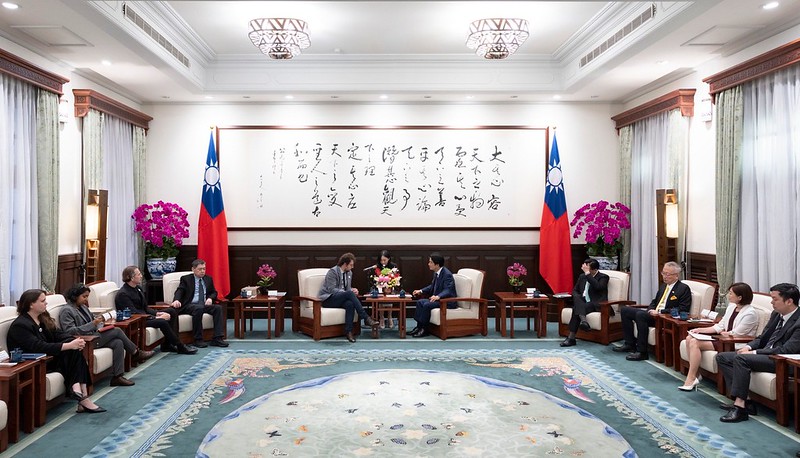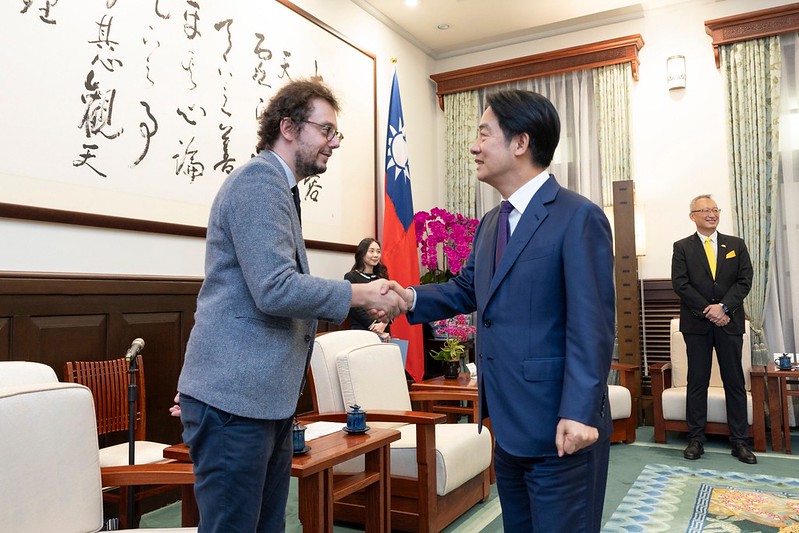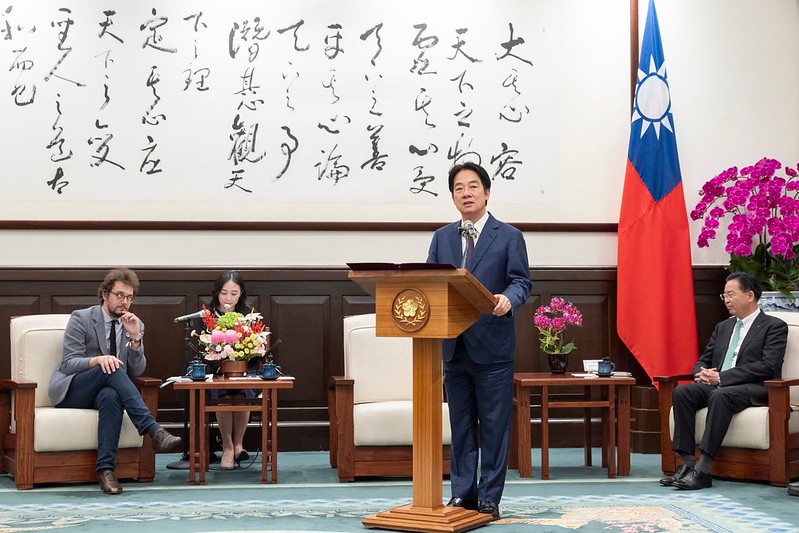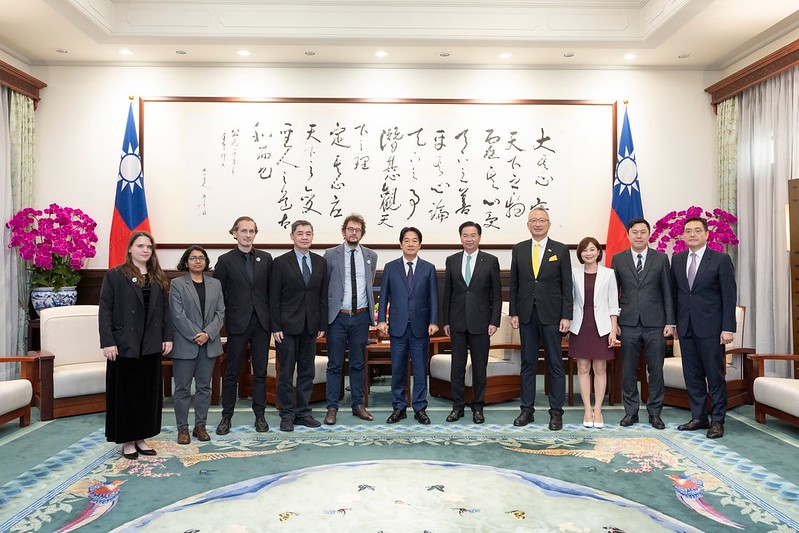News & activities
 News releases
News releases
On the afternoon of October 16, President Lai Ching-te met with a delegation led by Thibaut Bruttin, director general of Reporters Without Borders (RSF). In remarks, President Lai mentioned that today, Taiwan is not just a center for press freedom in Asia, but also a hub for international press throughout the Asia-Pacific region. The president said that Taiwan stands on the frontline of the defense of democracy, determined to do all we can to safeguard the values of freedom and democracy. He also said that Taiwan hopes to pursue an even more active role in the international community as we work alongside RSF and global democratic partners to champion press freedom and sustainable democracy.
A translation of President Lai’s remarks follows:
I warmly welcome RSF Director General Bruttin, who is visiting for the first time since taking on the role in July. Seven years ago, RSF established its first Asia bureau in Taipei. We have been honored to work with you all and contribute even more toward press freedom in Asia.
Taiwan is a freedom-loving democratic country. The spirit of freedom and democracy is in our DNA. And in recent years, our efforts have been recognized by the international community. We have received top rankings for Asia in various democracy indexes and evaluations of freedom. This year, Taiwan ranked first in Asia and rose to 27th in the world in the RSF World Press Freedom Index. This was our best performance ever.
Thanks to our liberal press environment, more and more international media outlets have been stationing personnel here in Taiwan each year. Today, Taiwan is not just a center for press freedom in Asia, but also a hub for international press throughout the Asia-Pacific region. Taiwan stands on the frontline of the defense of democracy, determined to do all we can to safeguard the values of freedom and democracy.
Of all the world’s nations, Taiwan is the most seriously targeted by foreign disinformation. Over the past few years, our government has striven to develop a more robust cybersecurity network. Taiwanese NGOs have also worked on policies designed to combat disinformation. And now we have established the Whole-of-Society Defense Resilience Committee directly under the Office of the President. By combining the strengths of the government and civil society, we aim to bolster our nation’s resilience in response to such challenges as disinformation and cyberattacks.
Facing a torrent of disinformation and the expansion of authoritarianism, Taiwan needs the world and the world needs Taiwan. We hope to strengthen cooperation and exchanges with other countries. Together, we can support the democratic umbrella and jointly safeguard our free and democratic way of life. Moving forward, Taiwan hopes to pursue an even more active role in the international community as we work alongside RSF and global democratic partners to champion press freedom and sustainable democracy.
Director General Bruttin then delivered remarks, indicating that it has been seven years since RSF chose Taiwan as the place to build a presence in Asia, and saying that they were right to do so in that the information provided by media in Taiwan is among the freest and more pluralistic, and that RSF stands with the media communities that are free, independent, and pluralistic.
Director General Bruttin noted that Taiwan is number one in terms of press freedom in Asia and 27th globally, saying this is an achievement that proves how important it is to sustain the efforts of civil society and encourage it through public policies that are in line with international principles.
The director general went on to say that there are several dimensions we could underline as a way forward for collaboration. First, he said, it is important to continue sustaining and leading the effort to have an end to the digital chaos, as the information that is spread on social media and on tech platforms is not always trustworthy or reliable, and we need to engage strongly to have policies that protect the public. Director General Bruttin said this is not just for journalism, but also for the general public, because it’s their right to know. The second point, he said, is that we need to encourage self-regulation and also protect the public through regulations that enable the media to thrive and develop. He emphasized that they believe there are ways to reform the media landscape in order to strengthen its accuracy and its ability to report with the ethical and deontological guidelines we need. Therefore, he said, we also need to strengthen the public service media in order to have a media landscape that restores the trust of the public.
The final point, Director General Bruttin stated, is about the need to expose propaganda and foreign interference in the media sphere, saying we need to not only chase and expose the disinformation campaigns that might be going on, but also understand the strategy and geopolitics of propaganda to understand the actors, budgets, and people behind it. It’s a phenomenon that can affect Taiwan, he indicated, but also a global phenomenon, and collectively, we need to do more altogether. Director General Bruttin closed his remarks by saying Taiwanese people can be really bold in fostering democracy, so he and the delegation are very confident about the seven years ahead.












